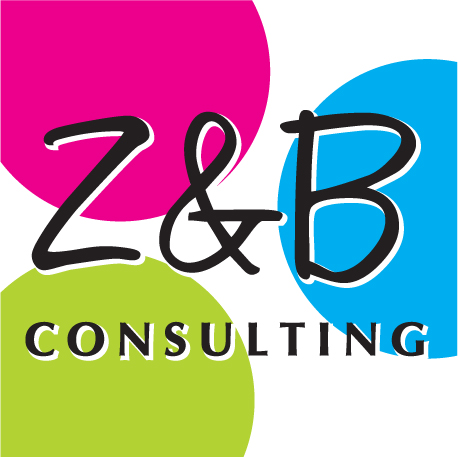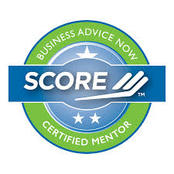|
For-profit businesses tend to get most of the attention when it comes to developing a business strategy, but it’s just as important (if not more important) for nonprofits to develop and maintain a business strategy. First, because nonprofits are still businesses, even if they’re nonprofit businesses. Second, because nonprofits are often working with fewer resources and more regulations than for-profit businesses, it’s especially important for them to have a strategic plan in place so they can be sure to use all those resources to the fullest, while abiding by the rules and regulations that apply to them. Here are 4 tips to help you get started with your strategic planning for nonprofits: Identify Your Nonprofit’s Vision
Identify What Your Nonprofit NeedsOnce you’ve outlined your vision for your nonprofit organization, you can take stock of the resources you need to get you there. What do you currently have available to you, and what do you need to add?
Learn from Best PracticesThe more time you spend operating a nonprofit organization, the more you’ll learn what works and what doesn’t. If you have experience working for different nonprofits, you might find that what works for one nonprofit organization doesn’t always work for another, which is why it’s so important to regularly assess which nonprofit strategies are working and which ones need some work. Don’t forget to reassess this from time to time because sometimes you’ll find that what worked last year, or even last month, is no longer bringing in results (for example, many of us found that strategies that worked in a pre-pandemic world did not hold up during a global pandemic). Prioritize Your Goals and Strategies for Your Nonprofit OrganizationMany businesses struggle with wanting to achieve a lot of big goals and try many different strategies all at once, but not only is that a recipe for burnout, it also makes it difficult, if not impossible, to identify what’s working and what’s a waste of time and resources. Prioritizing the goals you need to achieve and the nonprofit strategies you need to implement over the ones you want to try is key to making progress. That’s not to say you can’t experiment and play around with different nonprofit strategies. It simply means that most of your resources should be focused on achieving your primary goals before you start going after your secondary and tertiary goals. Need Help with Your Strategic Planning for Nonprofits?Michelle Smith is a Strategy Rockstar with decades of experience helping small businesses (including nonprofits) develop and refine their strategies so they can produce stronger results. You can get started by scheduling your FREE consultation.
0 Comments
I’ve never met an entrepreneur or business owner who’s afraid of hard work. We all want our businesses to be successful, and most of us are willing to do just about anything to make that dream a reality. So why do so many businesses fail if we’re all working so hard? For many entrepreneurs, it’s because they didn’t have a strategy, but that’s a topic for another blog post. Right now I want to talk about the importance of consistency, because that’s the true key to success, and I don’t mean working long hours every, single day, because many small business owners are already putting in the hours without reaping the financial reward. Instead, let’s look at what it means to be consistent in your business and how that can be the key to success you’ve been looking for. Trying New Things Is Not a StrategyEntrepreneurs like to try new things, and while that can often be a great way to test different strategies for your business, it can also leave you without the results you need if you don’t try any one business strategy long enough to give it time to work.
mean taking the things that work and putting them into practice consistently. Whether that means calling prospects, posting on social media, checking in with existing clients, the point is that while what you do does matter, making sure you do them consistently matters more. Consistency Beats Perfection Every Time
The key to success is to not let perfectionism prevent you from moving forward in your business. You might not be the best at making sales calls, but if you consistently reach out to prospects and let them know you’re available to help solve their problems, you’ll get better at having those conversations and you’ll see results. The same goes for posting on social media: the more you post and analyze which posts get the best results, the better you’ll get at creating posts that get you in front of your ideal clients and help drive results for your business. Make It Work with Your Schedule
If you’ve been dreaming of making a consistent income as a small business owner, but think you can’t make it a reality, think again. All you need to do is schedule your FREE consultation now to see how I can help you rethink your small business strategy.
When trying to grow a nonprofit organization, you can rely on some of the same lead generation strategies used by for-profit businesses, but fundraising for a nonprofit organization requires its own strategy. So if you’ve been struggling with your nonprofit lead generation strategy, use these tips to turn that around. Identify Your Target Audience
By contrast, once you’ve identified your target audience, you can create content that speaks to their values and communicates how your organization shares their values and helps make the world a better place. Refine Your MessagingYour message is what will get people’s attention and prompt them to learn more about you and your organization. Not only do you need to refine your message to make sure it clearly communicates what your nonprofit is all about, but you need to do so in a way that is engaging and makes people want to learn more about the work you do. Consistently Create High-Quality Content
to solve a particular problem, and if your nonprofit organization has content on its website that addresses those questions, you’ll be more likely to show up in those searches and draw those leads to your website. Create Interactive Content
Whether you need help refining your nonprofit lead generation strategies, or converting the leads who are already visiting your website into donors, it might be time to get some help from a Strategy Rockstar like Michelle Smith. Michelle has spent decades helping nonprofit organizations generate leads and reach their fundraising goals, so if you’re ready to stop struggling and start strategizing, you can schedule your FREE consultation with Michelle now to get started.
Entrepreneurs are often short on both time and money, which can make it hard to justify going on a retreat. How can you afford to spend the money and the time away from your business? In fact, a retreat is an investment in your business like any other, and while going on a retreat might mean stepping away from the office for a few days, it does not mean you are not working on your business. On the contrary, by taking a few days off and traveling to a different location (even if it’s just a few miles away), you can gain a fresh perspective, which is ideal for working on your business, rather than working in your business. If you’ve been wondering if an entrepreneur’s retreat is right for you, we have a few reasons why you should consider it one of the best things you can do for your business. Establish Your Vision
A retreat is a great opportunity for you to define the vision you have for your company and map out a plan to achieve that vision. Rather than letting your vision sit in a drawer somewhere (or in your head), a retreat gives you a chance to write it all down and think about the actions you can take in your business right now to achieve that vision. As the saying goes, a goal without a plan is just a wish, and when you attend a retreat, you can map out a plan to make that vision a reality. Increases Productivity
Make New ConnectionsSome retreats offer an opportunity to network as part of the retreat, but even if they don’t, just attending the retreat gives you an opportunity to surround yourself with like-minded entrepreneurs. Not only does this give you an opportunity to forge life-long friendships, you could also end up meeting your next best client and/or referral partner.
|
Why Morsels?Business advice, 
Please tell me how you found me
Archives
June 2022
Categories |
|
Office: 815-524-4307
|














 RSS Feed
RSS Feed




